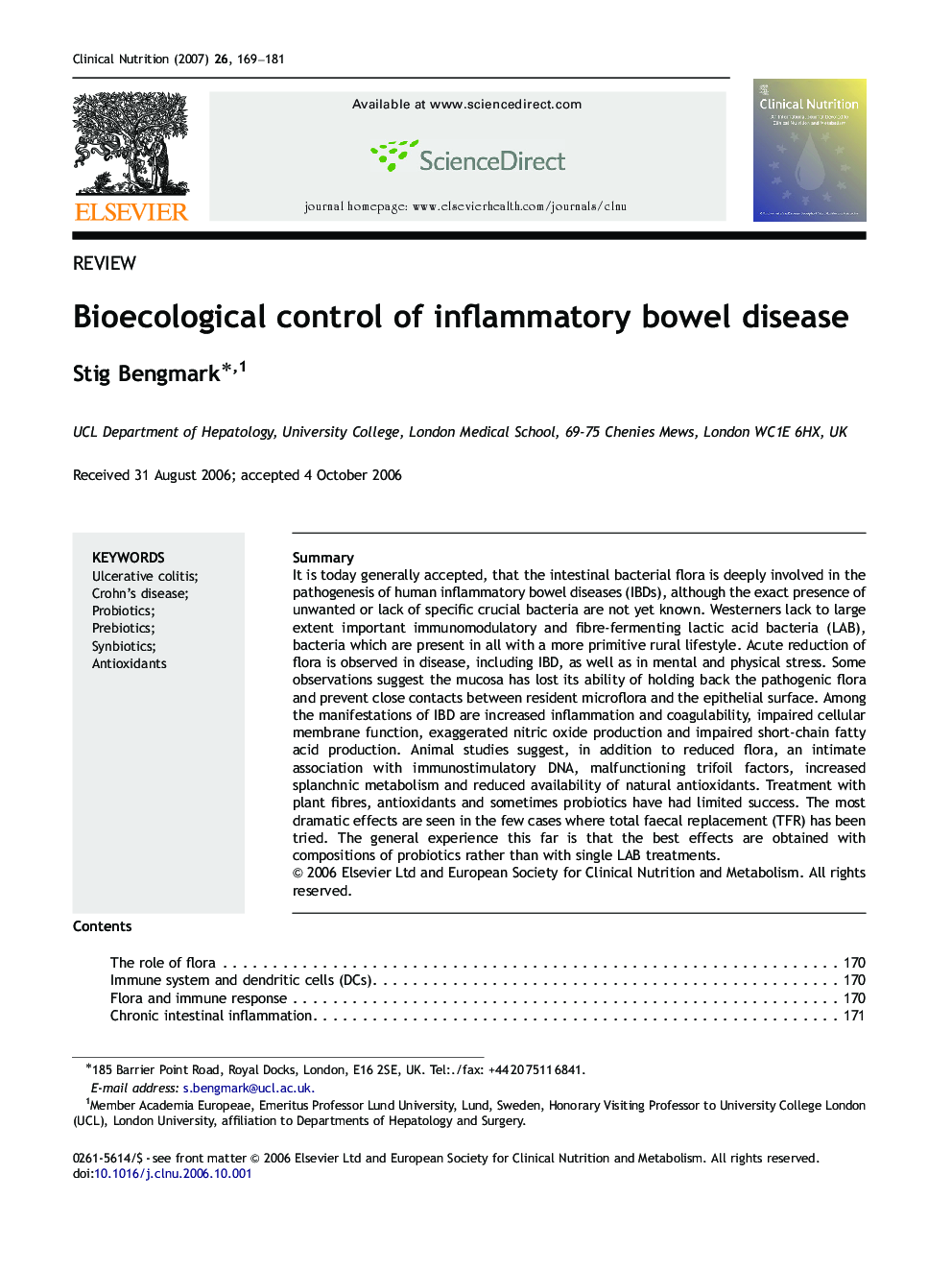| کد مقاله | کد نشریه | سال انتشار | مقاله انگلیسی | نسخه تمام متن |
|---|---|---|---|---|
| 2688613 | 1143116 | 2007 | 13 صفحه PDF | دانلود رایگان |

SummaryIt is today generally accepted, that the intestinal bacterial flora is deeply involved in the pathogenesis of human inflammatory bowel diseases (IBDs), although the exact presence of unwanted or lack of specific crucial bacteria are not yet known. Westerners lack to large extent important immunomodulatory and fibre-fermenting lactic acid bacteria (LAB), bacteria which are present in all with a more primitive rural lifestyle. Acute reduction of flora is observed in disease, including IBD, as well as in mental and physical stress. Some observations suggest the mucosa has lost its ability of holding back the pathogenic flora and prevent close contacts between resident microflora and the epithelial surface. Among the manifestations of IBD are increased inflammation and coagulability, impaired cellular membrane function, exaggerated nitric oxide production and impaired short-chain fatty acid production. Animal studies suggest, in addition to reduced flora, an intimate association with immunostimulatory DNA, malfunctioning trifoil factors, increased splanchnic metabolism and reduced availability of natural antioxidants. Treatment with plant fibres, antioxidants and sometimes probiotics have had limited success. The most dramatic effects are seen in the few cases where total faecal replacement (TFR) has been tried. The general experience this far is that the best effects are obtained with compositions of probiotics rather than with single LAB treatments.
Journal: Clinical Nutrition - Volume 26, Issue 2, April 2007, Pages 169–181